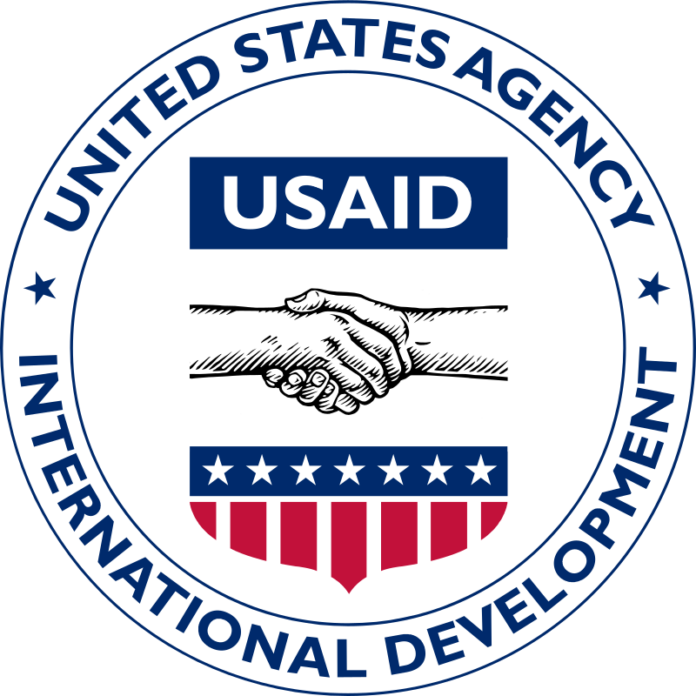In 2024, Nigeria was ranked seventh among the top 10 recipients of U.S. foreign aid, receiving approximately $763 million through the United States Agency for International Development (USAID). The funds, as reported by ForeignAssistance.gov, were allocated to various sectors, including public health, humanitarian aid, counterterrorism efforts, and economic development, reinforcing Nigeria’s importance in Africa and its long-standing relationship with the United States.
The funding directed towards Nigeria in 2024 was spread across four main areas: public health and humanitarian support, security and counterterrorism, economic development and governance, and food and emergency relief. These areas are critical to addressing some of Nigeria’s most pressing challenges, including ongoing security concerns, poverty, and health crises.
A significant portion of the U.S. aid was directed towards public health initiatives. Among the prominent programs funded was the President’s Emergency Plan for AIDS Relief (PEPFAR), which works to reduce the spread of HIV/AIDS in Nigeria. Other health initiatives focused on combating malaria, tuberculosis, and improving maternal health. These programs are especially important given the ongoing health challenges in Nigeria, where access to healthcare remains limited in many regions, particularly in rural and conflict-affected areas.
The U.S. has also been actively supporting Nigeria’s efforts to combat insurgent groups such as Boko Haram and the Islamic State in West Africa Province (ISWAP). These groups have been responsible for violent attacks, particularly in northeastern Nigeria, and the funding was aimed at supporting security reforms, counterterrorism training, and peace-building initiatives. This cooperation between the U.S. and Nigeria is part of a broader effort to stabilize the region and ensure the safety of both local populations and U.S. interests in Africa.
Another key area of focus was economic development. The U.S. government channeled funds into poverty alleviation programs, infrastructure development, and initiatives aimed at strengthening Nigeria’s democratic institutions. Given the country’s large population and significant economic potential, fostering sustainable growth and strengthening democratic processes are vital for Nigeria’s future stability and prosperity. USAID’s support in these areas is designed to create long-term improvements, addressing both Nigeria’s immediate needs and its future growth prospects.
Nigeria has also faced significant humanitarian challenges, particularly in conflict-affected regions. With millions displaced by violence and insecurity, food insecurity and lack of access to clean water have become major concerns. USAID funding helped provide critical food assistance, clean water, and emergency relief to displaced persons, particularly in regions impacted by Boko Haram and other insurgent activities. These efforts are vital for addressing the immediate needs of vulnerable populations and preventing further suffering in affected areas.
Nigeria’s position as the seventh-largest recipient of U.S. foreign aid in 2024 highlights its strategic importance to the United States. As Africa’s most populous country and one of its largest economies, Nigeria plays a central role in regional stability, economic growth, and security. The ongoing conflicts, including the Boko Haram insurgency and the growing threat from ISWAP, have made U.S. support for Nigeria’s security forces particularly crucial.
In addition to security concerns, Nigeria’s role in regional economic development cannot be overlooked. The country’s vast natural resources, including oil and gas, contribute significantly to both its own economy and the global energy market. As such, Nigeria’s political and economic stability is of interest to the U.S., which continues to work closely with the Nigerian government on issues ranging from trade to counterterrorism efforts.
While Nigeria continues to be a major recipient of U.S. foreign aid, it is important to consider the broader global context. In 2024, Ukraine was the largest recipient of U.S. foreign aid, receiving an impressive $6.1 billion in support, largely as a result of the ongoing war with Russia. This allocation reflects the United States’ commitment to supporting Ukraine during its conflict with Russia, which has had a significant impact on global politics and security.
Other major recipients of U.S. foreign aid in 2024 included countries in need of humanitarian assistance, economic development, and security support. These nations, like Nigeria, benefit from U.S. funding aimed at addressing critical issues in health, governance, and economic stability. U.S. foreign aid is also used to promote democracy, human rights, and peace-building efforts in regions experiencing conflict and instability.
Despite the substantial U.S. foreign aid allocated to countries like Nigeria, the future of such funding is currently uncertain. In January 2025, the Trump administration made the controversial decision to freeze nearly all U.S. foreign aid programs for a 90-day review. This move was carried out by the newly established Department of Government Efficiency (DOGE), which cited a need to reassess the effectiveness and impact of foreign aid programs.
The freeze on foreign aid has led to the suspension of funds, resulting in frozen bank accounts, office closures, and the dismissal of thousands of aid workers globally. Additionally, payments for previously fulfilled contracts, totaling up to $1 billion, were put on hold. This has raised concerns about the continuity of aid programs and the long-term impact on countries that depend on foreign assistance, including Nigeria.
This freeze has also led to legal challenges, with the U.S. Supreme Court currently reviewing the legitimacy of the action. As the court considers the case, the uncertainty surrounding the future of U.S. foreign aid could have significant implications for countries like Nigeria that rely on American support for critical programs in health, security, and development.

